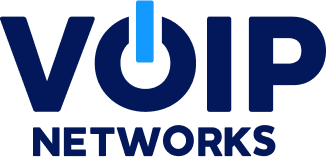When it comes to cloud computing, not all clouds are created equal. Many Unified Communications as a Service (UCaaS) solutions use public clouds, which offer scalability and savings. As communication systems have evolved, some enterprise organizations built private clouds to provide maximum security and control over their networks.
VOIP Networks makes it possible for organizations of all sizes to combine the flexibility and affordability of public clouds with the security and reliability of private cloud solutions.
Whose Cloud Is This?
Public clouds use a multi-tenant architecture, which is just what it sounds like: multiple organizations sharing space on a server (or, more likely, a virtual server). This is the lowest-cost way to build a UCaaS system since the users are sharing resources, such as operating systems and applications.
Operating systems and software are upgraded when the communications company, not the clients, chooses. Users who want any customization, such as other applications or the added security of their own virtual machines, are generally out of luck.
Think of multi-tenant architecture as an apartment building filled with tenants. The building owner, not the tenants, decides when to shovel the snow off the steps and repave the parking lot. The tenants can request security cameras or electrical vehicle chargers, but the building owner decides whether to install them.
In short, that multi-tenant cloud architecture means a lot of sacrifices. If a hacker manages to infiltrate one company’s telecommunications system, will they be able to hack other organizations using the same virtual server?
When a cloud isn’t private, users don’t know for sure.
A system built on multi-instance architecture, such as Cloud9 by VOIP Networks, provides a private cloud experience. The virtual servers belong to the company using them. Upgrades and updates happen when the company chooses. The company has complete control over its own communications system.
From The Premises To The Cloud
Many companies initially chose an on-premises system for the security and control that system provides. Whether in one location or spread across the globe, managing their own system and even their own data centers gives them maximum flexibility.
But adding and managing data centers, servers, and phone lines can get expensive and complicated, and take engineering staff away from other duties. It can also require staff that may be difficult to find and expensive. Cloud9 by VOIP Networks offers a turnkey alternative.
Not only can an outsourced, turnkey solution such as Cloud9 be more cost-effective while allowing the company to retain control, but there’s another benefit: reduced liability.
A partner such as VOIP Networks can ensure that a private cloud meets federal and state requirements, such as Kari’s Law, which ensures the ability to dial 911 directly, and RAY BAUM’s Act, which requires that all 911 calls include dispatchable location information.
If users move, VOIP Networks “moves” the account with them so that emergency personnel are dispatched to the correct location when an employee dials 911 from a company phone.
VOIP Networks can arrange for all licenses and manage and support all telecommunications needs, while organizations retain control. This can be especially helpful with a remote or hybrid workforce, creating a virtual workspace that operates as efficiently as if all employees were in the same building.
A private cloud was once reserved for large enterprises. Smaller organizations looking for an affordable, cloud-based system had no choice but to share systems and server space with other companies to enjoy an affordable system.
Today, Cloud9 brings the benefits of a secure, flexible, private cloud to organizations of all sizes. To learn more, contact VOIP Networks at 800.494.0000 or sales@voipnetworks.com.






